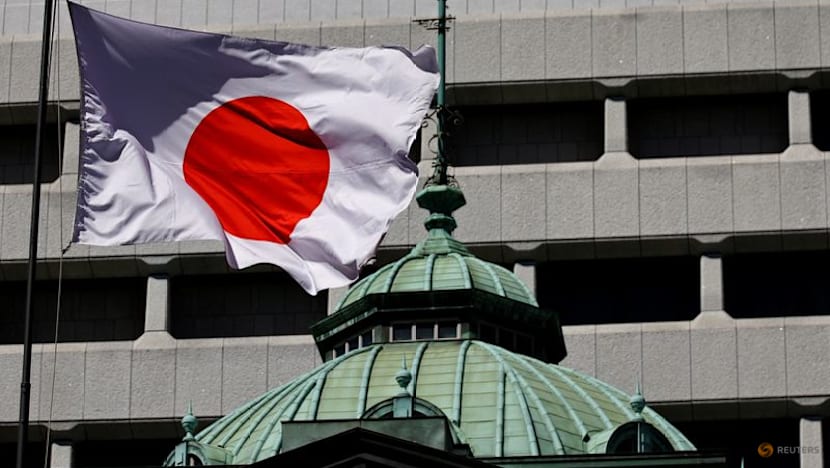Analysis:BOJ signals final phase of Ueda's stimulus unwind - selling ETFs

FILE PHOTO: The Japanese national flag waves at the Bank of Japan building in Tokyo, Japan March 18, 2024. REUTERS/Kim Kyung-Hoon/File Photo
TOKYO :The Bank of Japan is firming up a strategy to unload its huge holdings of risky assets that will likely centre on a plan to gradually sell exchange-traded funds (ETF) in the market, said three sources familiar with its thinking.
There is no consensus yet on when a decision about that would be made, the sources said, with the timing complicated in part by political turmoil caused by Prime Minister Shigeru Ishiba's resignation.
The move would be the last piece of Governor Kazuo Ueda's plan to close the chapter on a massive monetary stimulus experiment that began under his reflationist predecessor more than a decade ago.
It would also be a key part of the BOJ's efforts to shrink its balance sheet that has expanded to 125 per cent the size of Japan's economy - the largest among major central banks.
Given the huge market impact the move may cause, the BOJ has not said when it could start selling its 37-trillion-yen ($251 billion) holdings of ETFs - accumulated during its 13-year purchases that began from 2010 to revive a moribund economy.
It has also been publicly silent on how exactly it would unload the ETF holdings, saying only that it would do so at an "appropriate" price that prevents the bank incurring losses or causing major market disruption.
But the BOJ is starting to drop clearer hints, most recently from Deputy Governor Ryozo Himino's speech earlier this month.
In the strongest signal the timing may be nearing, Himino said the BOJ will "think about how to deal with its outstanding holdings of ETFs and real estate trust funds."
The remark contrasted with that of Governor Ueda, who had said the bank would "spend time" reaching a decision.
Himino also said in unloading ETFs, the BOJ would build on its experience selling stocks it purchased from 2002 to 2010 to help banks fend off huge losses from slumping equities prices.
The remark suggests the BOJ will sell ETFs in the market gradually in small increments, rather than opt for other ideas like transferring them to government entities, the sources said.
The selling of stocks bought from banks, which took 20 years, ended in July, which means the BOJ can now proceed with selling its ETF holdings, one of the sources said.
"It's clear the BOJ is making some progress in moving towards selling ETFs," the source said. "The change in communication might be one sign of this."
STICKING POINT
The BOJ began buying ETFs in 2010 and expanded purchases as part of former Governor Haruhiko Kuroda's radical stimulus programme deployed in 2013. The central bank stopped buying ETFs when it exited the stimulus last year.
Unlike Japanese government bonds (JGB), ETFs do not have maturity and so would not fall off the BOJ's balance sheet unless the central bank sells them.
"Nobody thinks it would be okay to leave things as is, so we need to scale back the size of holdings at some point," BOJ board member Kazuyuki Masu told a news conference in July, adding the bank must proceed with "extreme caution" given the impact its sales would have on markets.
The sticking point is the timing.
The BOJ is unlikely to decide on selling ETFs at next week's policy meeting, analysts say, though Ueda may comment on the topic at a post-meeting briefing on September 19.
With the Nikkei average scaling record highs, the BOJ could have seen an opportunity to decide in coming months - were it not for Ishiba's resignation that unleashed weeks of political uncertainty as lawmakers scramble to choose a new leader.
Embarking on asset sales amid political turbulence could be risky. The BOJ will lack clarity on the policies of the new administration, which won't be formed until well into next month after the ruling party's leadership race on October 4.
Badly timed, the decision could draw criticism or unwanted attention from politicians keen to tap proceeds from the BOJ's ETF holdings to fund spending programmes.
The biggest opposition party, the Constitutional Democratic Party of Japan, has proposed using the dividends from the BOJ's ETF holdings to fund childcare spending.
"I don't think the BOJ is in a huge rush," a second source said. "But it's something it eventually needs to get done."
($1 = 147.4700 yen)













